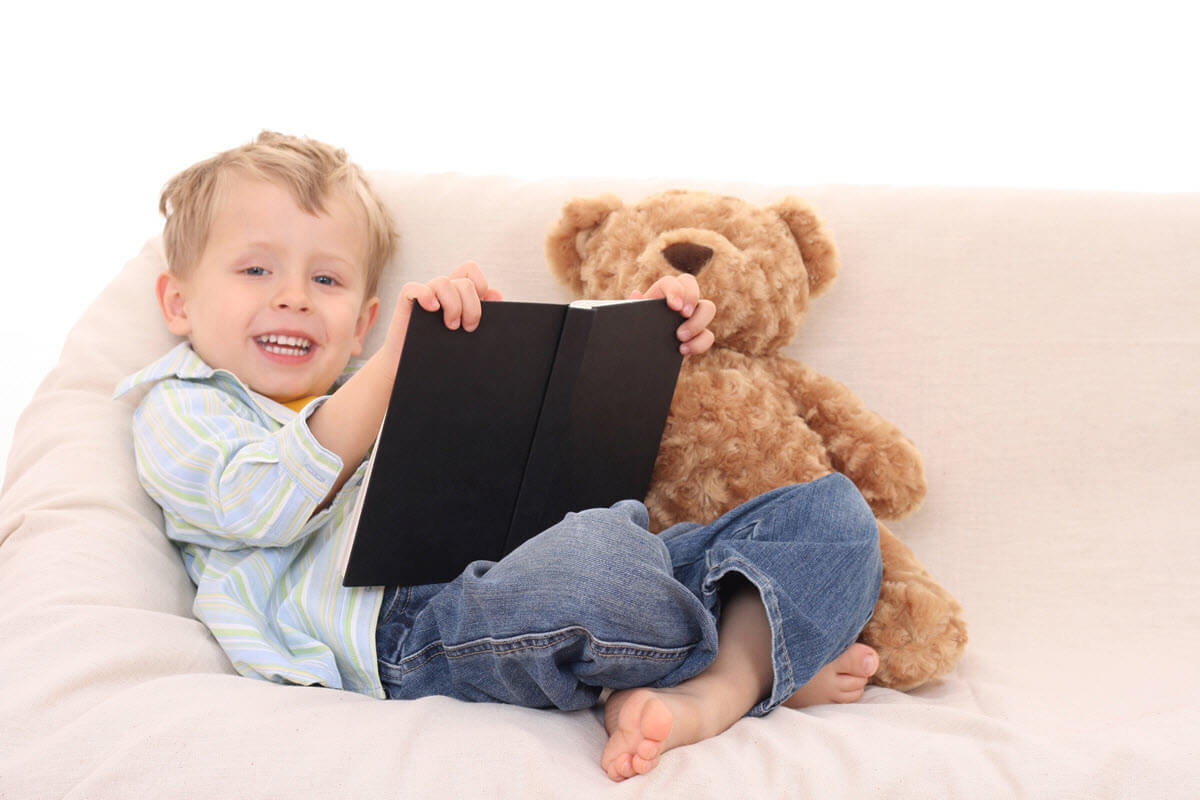Research-Backed Benefits of Reading for Young Children
As a parent, you know that reading with your child is important to their development.
But did you know that there is actually a ton of research to back up the benefits of reading for young children, especially for 2 and 3 year-olds?
From language and cognitive development to social skills and even academic performance, the benefits of reading are numerous and far-reaching
So grab a cozy blanket, snuggle up with your little one, and let’s dive in!

Language and cognitive development
One of the most well-known benefits of reading for young children is its impact on their language and cognitive development.
When you read with your child, you introduce them to new words and concepts, which helps them expand their vocabulary and improve their language skills. Reading also helps children develop phonemic awareness, which is the ability to recognize and manipulate the sounds in language.
This is a crucial skill for reading success, as it helps children to decode words and understand how letters represent sounds.
But the benefits of reading don’t stop there.
Research has shown that reading with young children can also improve their concentration, memory, and problem-solving skills. Imagine the endless possibilities for your child’s future if they have strong language and cognitive skills!
So, what can you do to maximize the language and cognitive benefits of reading to your 3-year-old?
It’s simple:
- encourage a love of reading from an early age
- choose age-appropriate books
- and use rich and varied language when reading with your child
And don’t be afraid to have some fun with it – use silly voices and make up your own endings to stories.
Trust us, your child will love it (and so will you).
In the end, reading with your child is a win-win situation – they get to learn and have fun at the same time, and you get to bond with your little one and watch them grow and develop.
Social and emotional development
Reading with your 3-year-old can do more than just teach them new words – it can also profoundly impact their social and emotional development. Reading with your child can help them develop important social skills such as:
- empathy
- understanding others’ perspectives
- and communication
Reading can also be a great way to help your child manage their emotions and develop self-regulation. Children’s books often deal with a wide range of emotions and experiences, allowing children to learn about and process their emotions in a safe and supportive environment.
But the benefits of reading don’t stop there – it can also positively impact your child’s mental health and well-being.
So how can you make reading time a positive experience for your child’s social and emotional development?
Here are some tips:
Make reading time a special bonding experience.
Snuggle up with your child and a good book and make it a relaxing and enjoyable activity for both of you.
Encourage conversation and discussion during storytime.
Ask your child questions about the characters and the plot, and encourage them to express their thoughts and feelings about the book.
Choose books that reflect and address your child’s emotions and experiences.
Books that explore themes like friendship, kindness, and managing emotions can be especially helpful for young children.
So the next time you sit down to read with your 3 year-old, remember that it’s not just about teaching them to read. It’s also about helping them grow into well-rounded, empathetic, and emotionally intelligent individuals.
And isn’t that what we all want for our kids?
Early literacy skills and academic success
Reading with your child is an essential part of their early development and can have lasting benefits on their academic success. Discover how reading helps the brain and fuels early literacy skills in our comprehensive guide.
Research has shown that children exposed to reading and storytelling at a young age have stronger early literacy skills, such as phonemic awareness, vocabulary, and comprehension.
These skills are crucial for reading success later in life and can significantly impact academic performance.
Establishing a daily reading routine with your child can help to build their early literacy skills and set them up for success in school. Choosing age-appropriate books and encouraging a love of reading from an early age can also help to support your child’s reading development.
But let’s be honest, reading with a 3 year-old can be challenging.
They may not have the attention span for a long story and may not always be in the mood for sitting still. That’s why making reading time special and meaningful for your child is important.
Creating a cozy and comfortable reading environment, engaging with your child during storytime by asking questions and filling in words in stories they know, and using rich and varied language can all help to make reading time a fun and enjoyable experience for both you and your child.
So, parents, if you want your little one to grow up to be a bookworm (or at least do well in school), make reading a daily habit and have fun with it!
Just remember, it’s not about reading the entire encyclopedia in one sitting (although, if your 3 year-old is up for the challenge, go for it). It’s about creating a love of reading and fostering early literacy skills to serve your child well throughout their academic career.
Conclusion
As parents, it’s important to remember that reading with your 3 year-old is about so much more than just learning letters and words. Understanding the 5 stages of literacy development can guide us in nurturing our child’s growth.
Reading is a powerful tool for helping young children develop in so many ways, from language and cognitive skills to social and emotional development.
And the research is clear: children who are read to from a young age are more likely to succeed academically and experience a lifetime of benefits.
- So don’t hesitate to make reading a daily habit with your little one.
- Choose engaging and age-appropriate books
- create a cozy and comfortable reading environment
- and use reading time as an opportunity to bond and learn together
And most importantly, have fun!
The more fun you have reading with your child, the more likely they are to develop a love of reading that will last a lifetime.
And if you’re looking for a program that can help your child learn to read and build early literacy skills – Check out Children Learning Reading – it’s a research-backed program that has helped thousands of children learn to read and succeed academically.

Natalie is a full-time blogger and former elementary school teacher who specializes in helping parents teach their kids to read. With a qualification in Early Childhood Education, over 7 years of experience in education, and a passion for literacy, Natalie provides practical tips, activities, and resources for parents looking to support their child’s learning-to-read journey. She is the proud mom of two young readers and loves sharing her knowledge and experience with other parents. Natalie enjoys spending time with her family, reading, and exploring the great outdoors when she’s not blogging.
